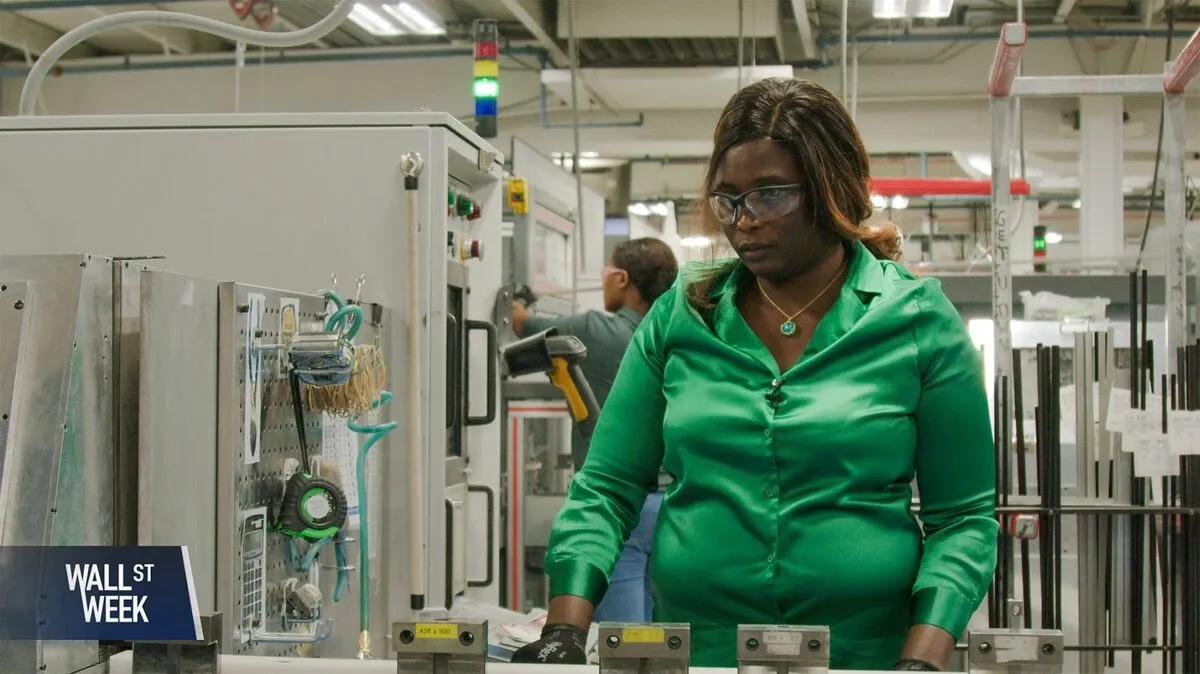«`html
Transcript Overview
In the face of a significant labor shortage, America’s manufacturing sector is increasingly reliant on immigrant workers. Take the case of a South Sudanese immigrant who moved to Fargo 14 years ago in search of a better life. Since 2013, she has been employed at Cardinal Glass, where 70% of the workforce is made up of individuals born outside the U.S. The plant manager, Mike Anson, emphasizes the importance of attracting the best talent, many of whom happen to be immigrants.
According to the Bureau of Labor Statistics, North Dakota currently faces the most severe worker shortage in the nation, with only 30 workers available for every 100 job openings, far below the national average of 95. With 30,000 open positions in the state, even if every potential worker entered the job market, thousands of positions would remain unfilled. This reality underscores the need for North Dakota to look beyond its borders for solutions.
Katie Ralston Howe, director of North Dakota’s Workforce Division, highlights the purpose of the newly established Office of Legal Immigration, which aims to connect immigrants seeking employment with companies in need. Despite the contentious political climate surrounding immigration, the focus remains on creating pathways for legal workers. The response from employers has been overwhelmingly positive as they recognize the vital role immigrants play in the workforce.
While North Dakota exemplifies extreme labor shortages, the trend is evident nationwide. The U.S. Chamber of Commerce reports that almost every industry across states is feeling the impact of labor shortages. As of now, there are over 8 million job openings, with fewer than 7 million individuals actively seeking employment. Companies like Cardinal Glass are vocal about the necessity of immigrant workers to sustain their operations and contribute to the local economy.
In Fargo-Moorhead, where the unemployment rate is just 1.2%, the demand for workers is high. Anson notes that the company has mastered training programs that accommodate non-English speakers, allowing them to quickly contribute in entry-level positions. This approach supports the growth of these workers, enabling them to advance in their careers within a year.
Despite changes in U.S. immigration policies, Cardinal Glass has managed to maintain a workforce where 70% are legal immigrants. However, uncertainties surrounding Temporary Protected Status (TPS) affect many workers, including Joseph Fleury, who fears deportation to Haiti. The potential loss of skilled employees due to policy changes poses a significant challenge for employers striving to fill open positions.
To address the impending workforce crisis, experts suggest four main strategies: increasing automation, enhancing local workforce development, importing goods and services, and, crucially, expanding immigration to bring in foreign workers. As the demand for labor continues to rise, businesses must adapt to ensure they can meet operational needs and support economic growth.
In conclusion, immigrant workers are integral to the success of companies like Cardinal Glass and the overall economy of North Dakota. With wages significantly above the national average for light industrial work, Fargo is an attractive destination for potential employees. However, to keep pace with economic growth, the region must continue to attract new talent, regardless of their origins.
«`
Source: Original
